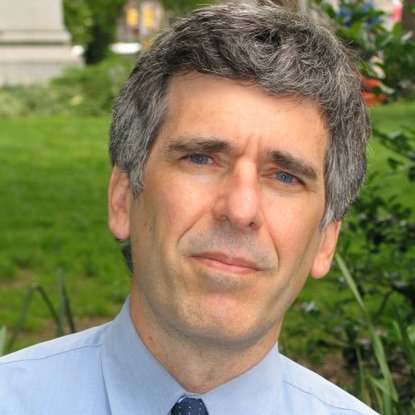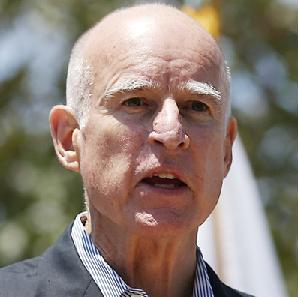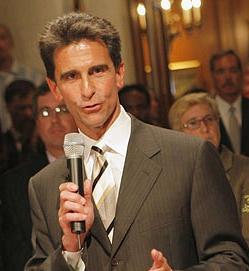More than 7,000 employees in Veterans Benefits Administration offices nationwide were furloughed today (Tues/8), the newest casualty of the federal government shutdown.
As the Republicans in Washington hold the nation hostage over President Obama’s Affordable Care Act, federal employees are leaving their offices in droves. Now the veterans who rely on the federal government for healthcare and education checks have nothing to do but wait on word of their uncertain futures.
The furlough of veterans benefits workers comes at an especially awful time as they struggle to meet an enormous backlog of health benefit claims, revealed this year by the Berkeley-based Center for Investigative Reporting.
“VA’s ability to make significant progress reducing the disability claims backlog is hampered without the increased productivity gained from overtime for claims processors,” the Veterans Benefits Administration said in a statement released today. The agency has reduced the disability claims backlog by more than 190,000 claims over the last six months, it wrote.
But even worse, it said that if the government shutdown persists into late October there would be no funding available to supply veterans with their November support checks — money many rely on for rent and food.
“In the event of a prolonged shutdown, claims processing and payments in these programs would be suspended when available funding is exhausted,” the office wrote in a release.
San Francisco has veterans of many stripes who depend on federal benefits: Students paying tuition, ex-soldiers getting housing benefits, the disabled seeking health care, all would be left without support.
The loss can be felt keenly at City College of San Francisco, where the employees of its pioneering Veterans’ Resource Center wait in fear of Nov. 1.
“With the government shutdown we’re going to have a massive amount of people coming in asking questions,” said Adam Harris, a student worker at CCSF’s Veterans’ Resource Center. The 25-year-old is a veteran himself, and served in the Navy for six years as a petty officer second class in Iraq, Afghanistan, and Guantanamo Bay.
“If people aren’t paid on the first when they’re expected to you get a wave of people asking ‘where’s my money at?’” he said. The GI Bill pays for full tuition for student veterans who have completed their service, and those still serving. But it’s not just tuition.
“It’s pretty much a living allowance,” he said. In addition to tuition the the GI Bill pays for housing, food and living expenses. City College of San Francisco alone has over 1,200 student veterans according to their own data, many of whom attend full time.
The state community college chancellor’s office, which oversees California’s 112 community colleges, said the loss of benefits would be dire for its student veterans.
“Should this come about, our student veterans would be left without education benefits and basic housing allowances,” said Paul Feist, a spokesperson for the Community College Chancellor’s office. “It’s probably safe to assume that many student veterans would be forced to drop out of school should this occur.”
They noted that the VA’s educational benefits hotline is inaccessible during the government shutdown, cutting off a vital counseling service as student veterans navigate their tuition payments.
The CA Community College Chancellor’s Office most recent data shows that as of the 2011-12 school year, there were over 44,000 community college student veterans receiving benefits statewide, many of whom are in the Bay Area. All would be affected.
Rachel Maddow announcing the shutdown of veteran benefits offices, which give advice and aid for veterans seeking help with their education, lhousing and health benefits.
Student at the state level colleges will fare no better, though, and there are just over 700 student veterans at San Francisco State University, according to their website. The head of SFSU’s veterans center, Rogelio Manaois, said that his office was sending regular updates to SFSU students and that they were prepared for the possible delay of benefits.
Notably not all veterans depend on the GI Bill to live. Some vets the Guardian spoke to at City College said that they had part time jobs and would not be in hardship if there were a drop in payments. Also, the VA Medical Center in the Outer Richmond announced on its website that it will not be affected by the government shutdown. Not all veterans are in the same boat, however.
Bobby Hollingsworth served as a Criminal Investigations Divisions investigator in the US Army from 1999 to 2010. Though he’s now a graduate of SFSU, he and his family depend on disability payments from the VA to live.
Hollingsworth injured his his leg in basic training, and the repeated stress through the years required multiple surgeries that he never fully recovered from. His disability payments also cover PTSD, as through his decade of service he spent over a year listening to the explosions of mortar shells peppering his Containerized Housing Unit in Iraq.
He remembers those days vividly.
“I heard commotion and opened my door and looked up and to the side of our CHU’s. The sky was lit up like a scene in Star Wars” he said. “We got hit with seven mortars that night and a few airmen were rushed to the hospital with unknown injuries. We just never really followed up on those things. At the time maybe we thought best not to know.”
To say he earned his benefits is an understatement, he said, and the same goes for all of his fellow Veterans.
As a documentary filmmaker, he is investigating other Veterans who have been denied their education benefits. Now the government shutdown may delay Hollingsworth’s payments as well.
His wife depends on them for college, he said, and without his disability payments he may be unable to make his first mortgage payment on their new house. His wife and four-year-old son will be fine for now, he said, but if the payments are delayed for long he’ll be worried.
“I can hold out for a month because of emergency savings and the food bank,” he said. “But by December, it will be a nightmare.”
Yesterday the VA posted their “Veterans Field Guide to Government Shutdown,” which can be read here.



















